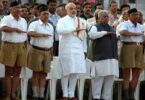NEW YORK (APP): Foreign Minister Bilawal Bhutto Zardari on Wednesday said that there would be no durable peace in South Asia until the Jammu and Kashmir dispute resolved on the basis of justice and international legitimacy. “The dispute has remained unresolved primarily due to India’s refusal to implement the resolutions of the Security Council, which stipulated that the final disposition of the State of Jammu and Kashmir shall be made in accordance with the will of the people expressed through the democratic method of a free and impartial plebiscite conducted under the auspices of the United Nations,” the foreign minister said while addressing a meeting of the Organization of Islamic Cooperation Contact Group on Jammu and Kashmir.
The foreign minister said the Jammu and Kashmir dispute, along with Palestine, was one of the two longest- standing items on the UN and OIC agenda. OIC Secretary General Hissein Brahim Taha chaired the meeting with the participation of Ministers and high-level representatives from members of the Contact Group. Foreign Minister Bilawal Bhutto Zardari led the Pakistan delegation. The meeting reviewed the political and security environment and the deteriorating humanitarian and human rights situation in Indian Illegally Occupied Jammu and Kashmir (IIOJK). The Contact Group comprised Azerbaijan, Niger, Pakistan, Saudi Arabia and Türkiye.
Participating Foreign Ministers emphasized the importance of the Jammu and Kashmir issue on the agenda of the OIC and expressed support for the Kashmiri people and their fundamental rights. They called for an early peaceful resolution of the Jammu and Kashmir dispute. President of Azad Jammu and Kashmir Barrister Sultan Mehmood Chaudhry attended the meeting as the True Representative of the people of Jammu and Kashmir. Addressing the meeting, Foreign Minister Bilawal Bhutto Zardari said the ceasefire understanding of 25 February, 2021 along the Line of Control (LOC) was a prime example of Pakistan’s efforts to maintain peace along the LOC, save precious Kashmiri lives, and alleviate their sufferings living along both sides of the LOC.
The foreign minister said the ceasefire understanding of 25 February, 2021 along the Line of Control (LOC) was a prime example of Pakistan’s efforts to maintain peace along the LOC, save precious Kashmiri lives, and alleviate the sufferings of Kashmiris living along both sides of the LOC. “We expected that India would take positive steps to enable the resumption of dialogue to resolve the dispute. Instead, India intensified its repression,” he regretted. Foreign Minister Bilawal further said Pakistan was prepared to resume a dialogue with India to resolve the Jammu and Kashmir dispute.
“The onus is on India to create a conducive environment for such a dialogue. It must reverse its unilateral and illegal measures instituted on 05 August, 2019, halt its human rights violations in IIOJK, and reverse the demographic changes in the occupied territory,” he stressed. He said, last month marked the completion of three years of India’s illegal and unilateral actions of 05 August, 2019 aimed at changing the internationally recognized “disputed” status of Jammu and Kashmir and altering the demographic structure of the occupied territory in blatant violation of the UNSC resolutions. To this end, he said, India had resorted to a series of illegal actions, gross and consistent violations of human rights, and other crimes.
The foreign minister further said first, there was no letup in the Indian military deployment in occupied Jammu and Kashmir. Roughly 900,000 troops to date. This military deployment was the densest occupation in recent history, he added. Second, the foreign minister elaborated that this massive Indian occupying force had continued to perpetrate vicious and repressive actions, including: extrajudicial killings of innocent Kashmiris in fake encounters, custodial killings and “cordon-and-search” operations, the use of pellet guns to kill, maim, and blind peaceful protestors, the abduction and enforced disappearance of 15,000 young Kashmiri boys and “collective punishments” with the destruction and burning of entire villages and urban neighbourhoods.
Foreign Minister Bilawal Bhutto said the Indian authorities incarcerated the entire Hurriyat leadership, the true representatives of Kashmiri political aspirations. “Most Hurriyat leaders are subjected to brutal and inhumane treatment at the hands of Indian occupation forces,” he added. Fourth, he said, in pursuance of the “Hindutva” ideology, the RSS-BJP government in India had initiated illegal demographic changes in the occupied territory in gross violation of international law, including the Fourth Geneva Convention.
The foreign minister viewed this “as central to its scheme of converting the Muslim majority into a Hindu-majority territory to drown out the demand for freedom and self-determination.” He said new “domicile rules” had been introduced, and over 4 million fake domicile certificates had been issued to Hindus from across India to settle in occupied Jammu and Kashmir, adding the land and properties of Kashmiris were being confiscated for military and official use. The foreign minister said through an exercise of reallocation of electoral seats in the IIOJK “legislature” and the gerrymandering of electoral boundaries within the occupied territory by a so-called “Delimitation Commission” Muslim representation was to be further reduced, and the voices for freedom further silenced.
The foreign minister also expressed his profound gratitude to the OIC secretary general for once again convening this ministerial meeting of the OIC Contact Group on Jammu and Kashmir. He thanked the secretary-general for providing them with update on the implementation of the action plan that was adopted during the last meeting of the OIC Contact Group on the margins of the 48th OIC CFM in Islamabad. The foreign minister expressed the confidence that today’s interaction would help them take stock of the prevailing political and security environment and the consequent impact on the humanitarian and human rights situation in the IIOJK and consider ways and means to address these challenges.
“Pakistan greatly appreciates the OIC’s continued and unequivocal support for this just cause, he said, adding the OIC’s Contact Group had made an invaluable contribution to galvanizing international attention on the worsening situation in IIOJK. “OIC support remains fundamental to efforts toward a lasting solution of the Jammu and Kashmir dispute, as captured in the action plan agreed in Islamabad earlier this year,” he maintained.
The foreign minister said the OIC had been at the forefront of efforts to support the legitimate struggle of the Kashmiri people for their inalienable right to self-determination, as reflected in the decisions and resolutions of the Islamic summits and Council of Foreign Minister sessions and the statements issued by the OIC’s General Secretariat.
The foreign minister also highlighted the contact group members’ active support in raising the issue at relevant UN fora, including the possibility of writing a joint letter to the Security Council on behalf of the Contact Group conveying its outcome documents. Earlier, President Azad Jammu and Kashmir briefed the Contact Group about the gross human rights violations in IIOJK and called for OIC’s continued support for the Kashmir cause. In his opening remarks, the OIC Secretary General reaffirmed OIC’s commitment to a peaceful settlement of the Jammu and Kashmir dispute in accordance with the relevant resolutions of the United Nations and the OIC Summits and Council of Foreign Ministers. He also presented a report on the implementation of the action plan agreed upon during the last meeting of the OIC Contact Group on Jammu and Kashmir in March 2022 in Islamabad. The meeting of the Contact Group concluded with the adoption of a comprehensive Joint communiqué.






